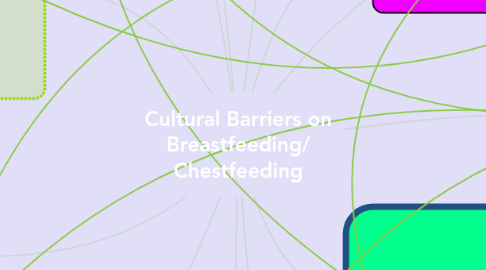Cultural Barriers on Breastfeeding/ Chestfeeding
por Samantha Fletcher

1. School/ Nursery/ Childcare
1.1. time away from baby
1.2. limitations on feeding routine/preferences
2. Fear
2.1. misinformation
2.2. past experiences with feeding
3. Socioeconomic Status
3.1. demographics
3.1.1. race
3.1.2. prejudice
3.1.2.1. implicit bias to persons perceived needs
3.2. lack of equitable access
3.3. biasedly limiting support services
3.4. redlining business development that influences support access
4. Family
4.1. opinions
4.2. intimate partner violence
4.3. partners feeding interest
4.4. imposed beliefs
4.5. religious influence
5. Healthcare providers
5.1. misinformation
5.2. sabotaged care
5.3. marketing mixed with care practices
5.4. lack of equitable access in hospital
5.5. denying access to infant
5.6. denying patient agency
6. Trauma
6.1. childhood
6.2. sexual assault
6.3. IPV
6.4. Birth trauma
7. Employment
7.1. proper places to pump
7.2. paid leave limitations
7.3. short leave or NO leave
7.4. loss of job placement or job security
8. Location
8.1. rural without access
8.2. segregated neighborhoods
8.3. support service limitations
9. Body Image
9.1. phobias
9.2. trauma history
9.3. weight concerns
9.4. sexualization of breast/chest
10. Mental Health
10.1. personal fears
10.2. trauma/childhood history
10.3. medications
10.4. external influences affecting choice making
11. Community Support
11.1. lactation groups
11.2. social expectations
11.3. opinions vs. evidence
11.4. pressure to bottle feed
12. Social Norms
12.1. bottle pushing
12.2. EBF shaming
12.3. comparison
12.4. imposed expectations


